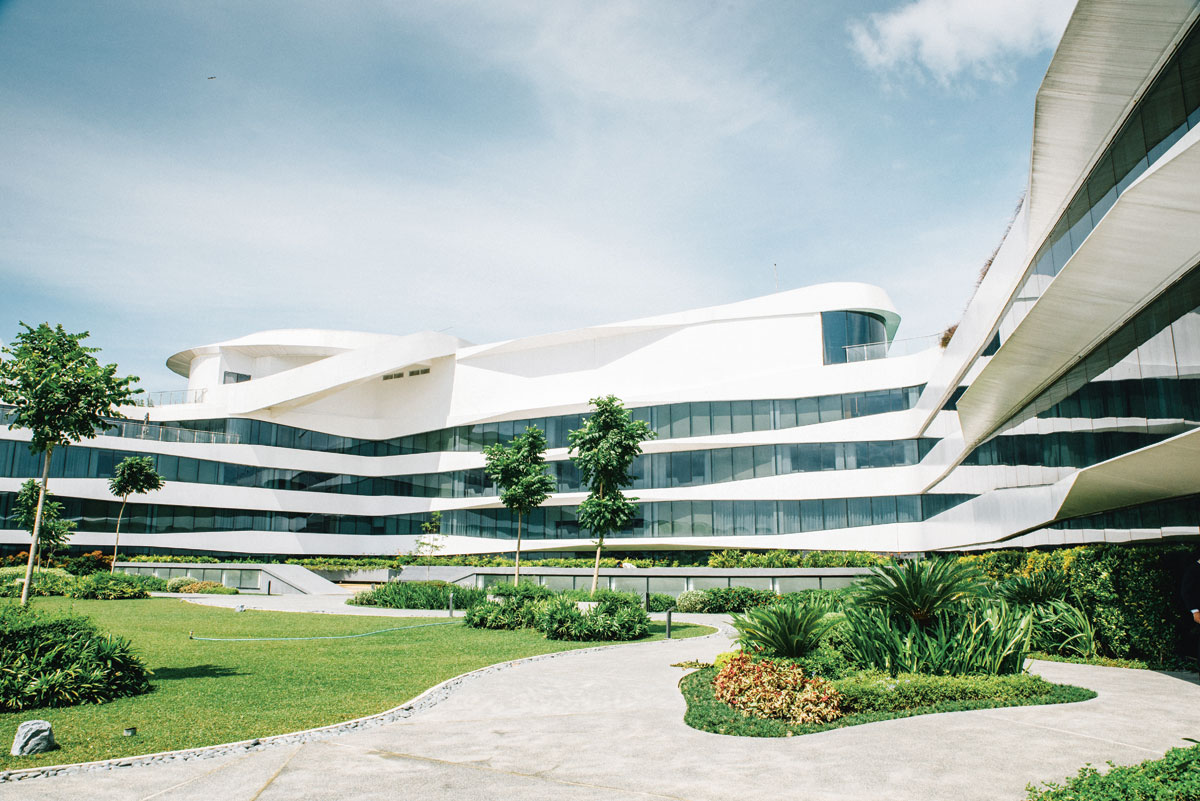Boasting authentic tourist testimonials from around the world has made TripAdvisor the de facto resource for travelers. But, like food, many forget that what’s convenient and comfortable for one person might not be the case for the other. What’s luxurious for an old couple may vary from that of a gang of fresh graduates. Standards should still be set.
The food world has the Michelin guide and San Pellegrino’s World’s 50 Best Restaurants. In the industry of hotels and hospitality, it comes in the form of stars.
Generally, hotel star ratings differ from one country to another, but it is a definitive way of measuring a hotel’s overall quality. In the Philippines, the Department of Tourism issued a new National Accommodation Standards (NAS), which established a new Star-Rating System (SRS) for the accreditation and classification of hotels, resorts, and apartment hotels.
Before, hotels passed only as Economy, Standard, First Class, or Deluxe. The old accommodation standards were derived from a checklist or inventory-type system based only on the presence or absence of facilities and services offered by the establishments.
The new accommodation standards are presented as a point system rating based not only on inventory and availability but also on the condition and quality of a specific facility as well as service.
The new accommodation standards, released in June 2012 and publicized only in the last quarter of 2013, are presented as a point system rating based not only on inventory and availability but also on the condition and quality of a specific facility as well as service. It is based on an internationally accepted classification that allows a standardized rating system for hotels, resorts, and apartment hotels all over the world. The Philippines was the only nation in Asia that did not use a similar star rating system in the classification of hotels. It is expected that the hotels in the country will step up their game to ensure that all facilities, accommodations, and services cater to the global market.
The NAS applies only to hotels, resorts, and apartment hotels. For other types of accommodations such as tourist inns, pension houses, home stays, and motels, a separate set of standards is currently in development.
The development of the SRS dates back to 2010 when German government organization Gesellschaftfür Technische Zusammenarbeit (German Technical Cooperation or GIZ) approached the DOT and offered to assist the Philippines in the development and establishment of the Philippine Standards and Certification System for Tourism Enterprises without cost. GIZ has been implementing projects to promote economic, ecological, and social development in the country for more than 30 years, and is currently collaborating with the Department of Trade and Industry (DTI) for an improved business environment, particularly in the Visayas.
The DOT star rating system for hotels and resorts is categorized into seven dimensions: Arrival and Departure, Public Areas, Bedrooms, Bathrooms, Food and Beverage, Amenities, and Business Practices.
The DOT star rating system for hotels and resorts is categorized into seven dimensions: Arrival and Departure, Public Areas, Bedrooms, Bathrooms, Food and Beverage, Amenities, and Business Practices. The Kitchen and Lounge Areas are only included in apartment hotels.
Each category has numerous indicators that describe the availability, quality, and condition of the facility as well as the service, and every indicator has corresponding points. Quality judgment is used to determine whether a facility or service is Unacceptable, Acceptable, Good, Very Good, Excellent or Outstanding. A total of 1,000 points has been set as the maximum number of points that can be achieved by hotels, resorts, and apartment hotels. The percentages of these dimensions contribute to the total score of the hotel. Bedrooms constitute the largest percentage at 30 percent, followed by Bathrooms and Food and Beverage at 15 percent.
All hotels, resorts, and apartment hotels are required to be subject to NAS. A corresponding accreditation fee is also assigned depending on the number of stars the hotel applies for, and the validity of the award lasts for two years.
One Star: 25 to 40 percent achievement (251 to 400 points) – There is a limited range of facilities and services.
Two Star: 40 to 55 percent achievement (401 to 550 points) – The establishment offers expanded facilities and higher level of comfort.
Three Star: 55 to 70 percent achievement (551 to 700 points) – These enterprises offer a very good level of accommodation. There are more spacious public areas, higher quality facilities, and a greater range of services.
Four Star: 70 to 85 percent achievement (701 to 850 points) – These properties are upscale in all areas. Accommodation is refined and stylish. Service is responsive, often including an extensive array of facilities.
Five Star: 85 to 100 percent achievement (851 to 1,000 points) – These properties reflect the characteristics of luxury and sophistication. The facilities are world class in every manner and the meticulous service exceeds all guest expectations.
These three hotels are just a few of the many that have exceeded the qualifications required by the DOT to become a 5-star hotel. While the standards focus on technical qualities, these 5-star hotels pride themselves on the exceptional service that their personnel exhibit to guests every day.
Sky high
There is a fair amount of things going for Marco Polo Ortigas Manila and its 5-star seal proves it. But of the lot, two particularly stand out: location and food.
Being centrally located in Ortigas, the hotel allows guests easy access to shopping malls, museums, restaurants, and bars. Then again, the hotel also has its own features that make leaving the premises difficult. It has two Continental Club floors and a Continental Club lounge on the top floor where stay-in guests can exclusively avail of privileges and benefits, and take in the cityscape view, something other hotels can’t offer.
Marco Polo Ortigas Manila also boasts of an authentic Cantonese restaurant called Lung Hin located on the 44th floor. The food establishment was recognized as one of the most outstanding Chinese restaurants outside China at the 16th China Hotel Industry Golden Horse Awards Gala; another asset that makes the hotel an industry frontrunner.
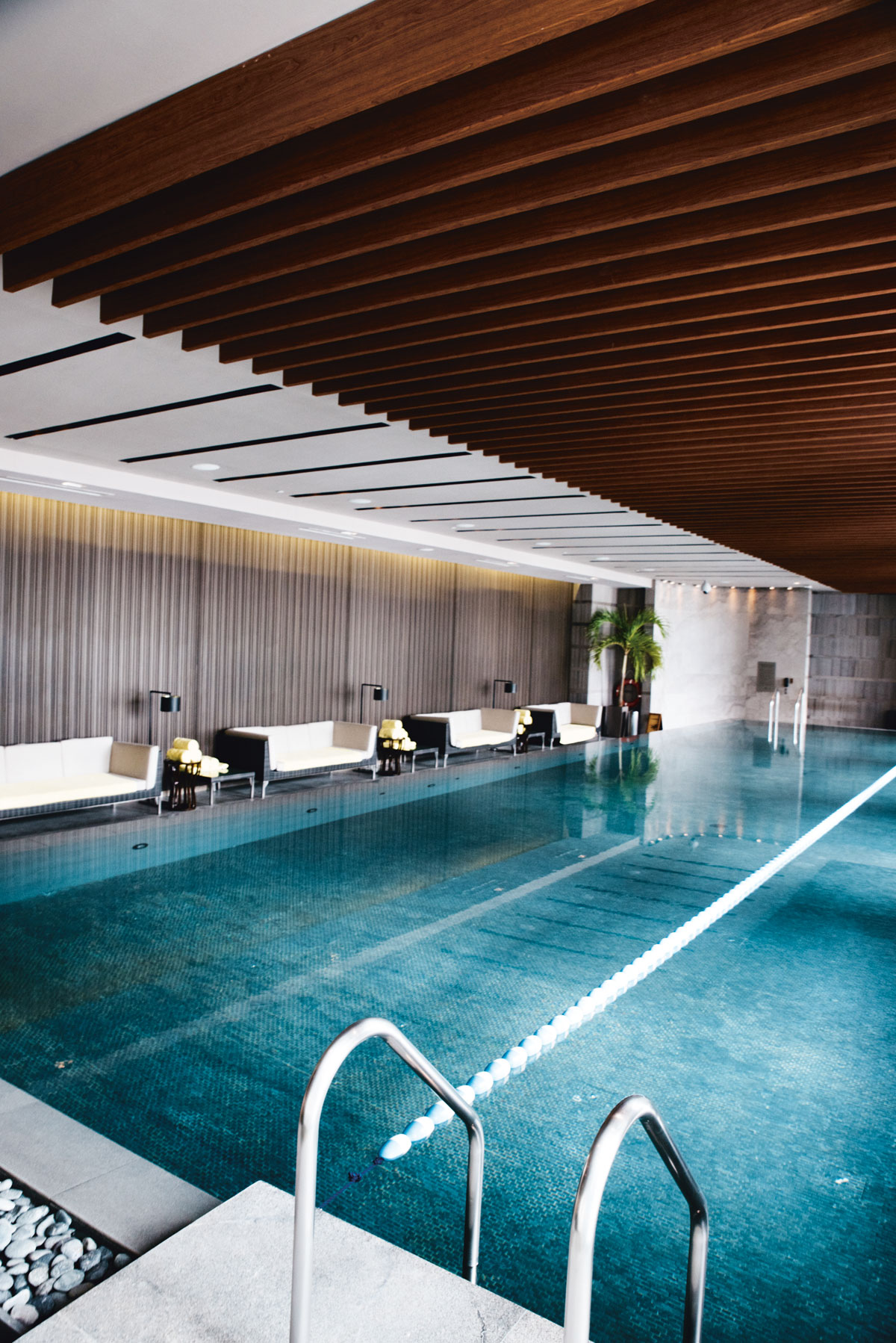
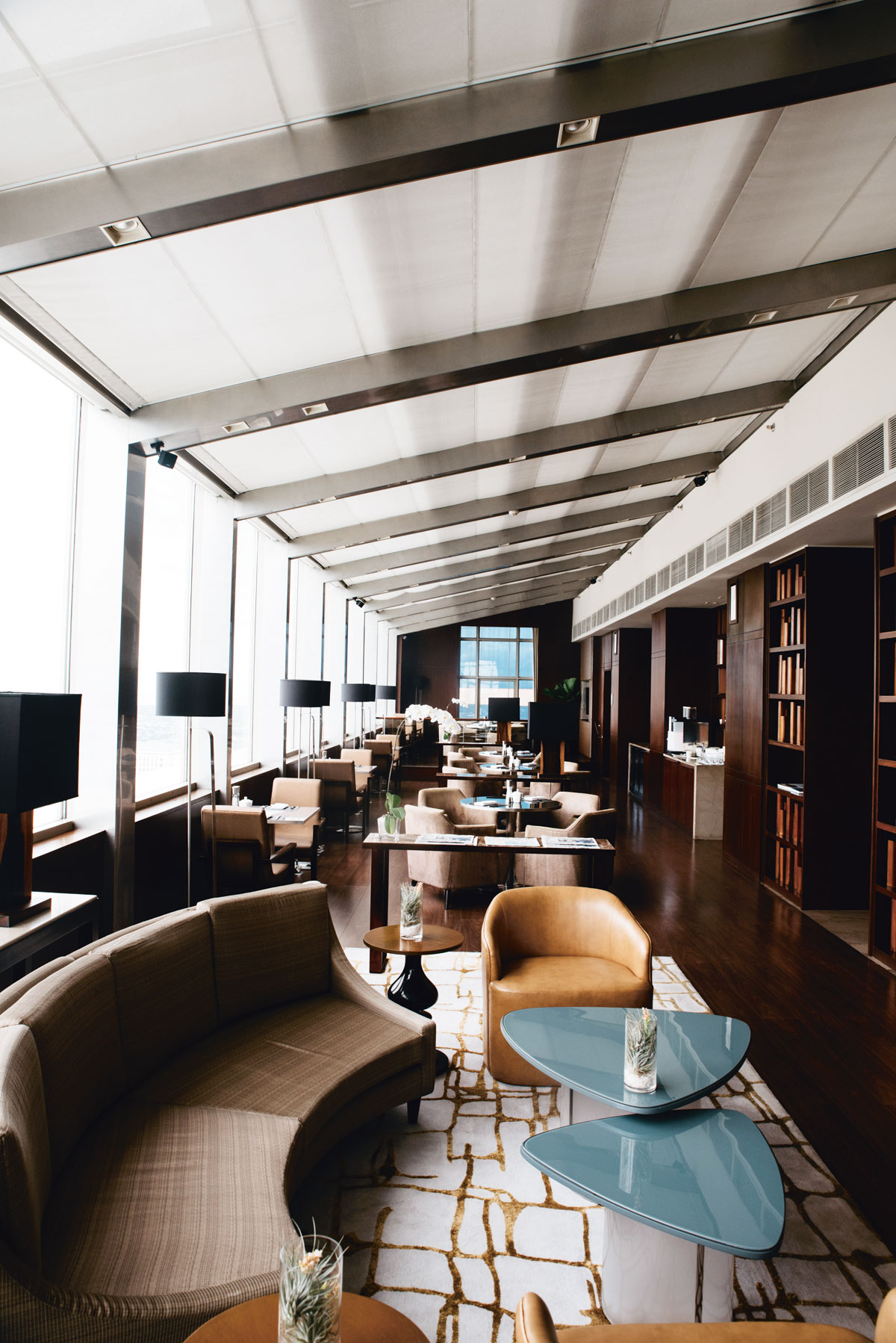
Living the dream
Hyatt Hotels has built quite a reputation across its over 60 hotels worldwide. And the Hyatt City of Dreams Manila (now called Hyatt Regency Manila) is no different as it carries the same high standards in providing hospitality. But more than the usual facilities and decked-out rooms, this Hyatt has an ace up its sleeve that nearby establishments can only dream of.
And that’s being part of the sprawling City of Dreams Manila entertainment complex, which has something for the whole family: DreamPlay, the world’s first family entertainment center from Hollywood studio Dreamworks Animation for the kids; nightclubs Pangaea and Chaos for teens and yuppies; and the casino and a bunch of international shops for parents. It also helps that the Hyatt is just a stone’s throw away from the airport, saving fly-in visitors from traffic.
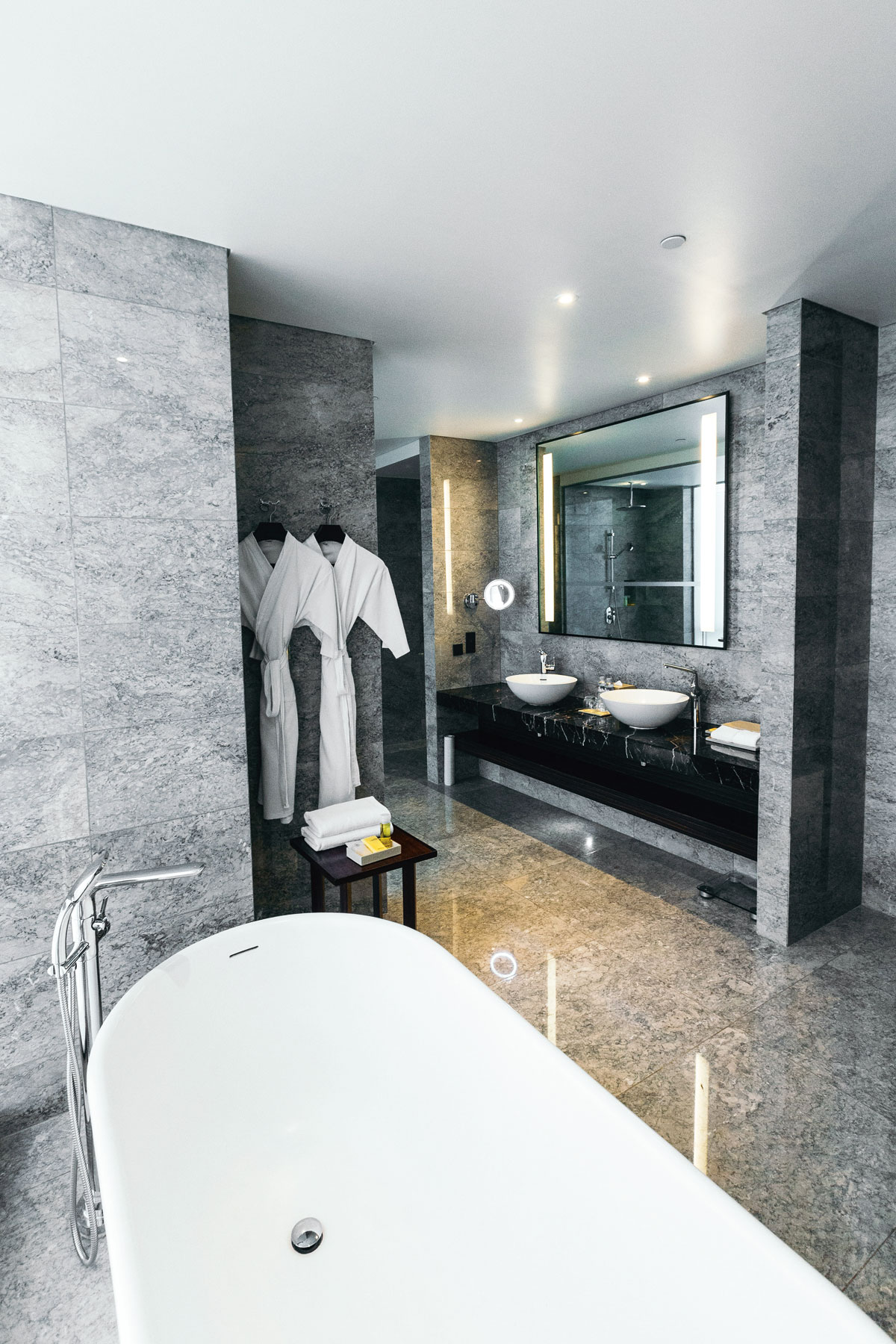
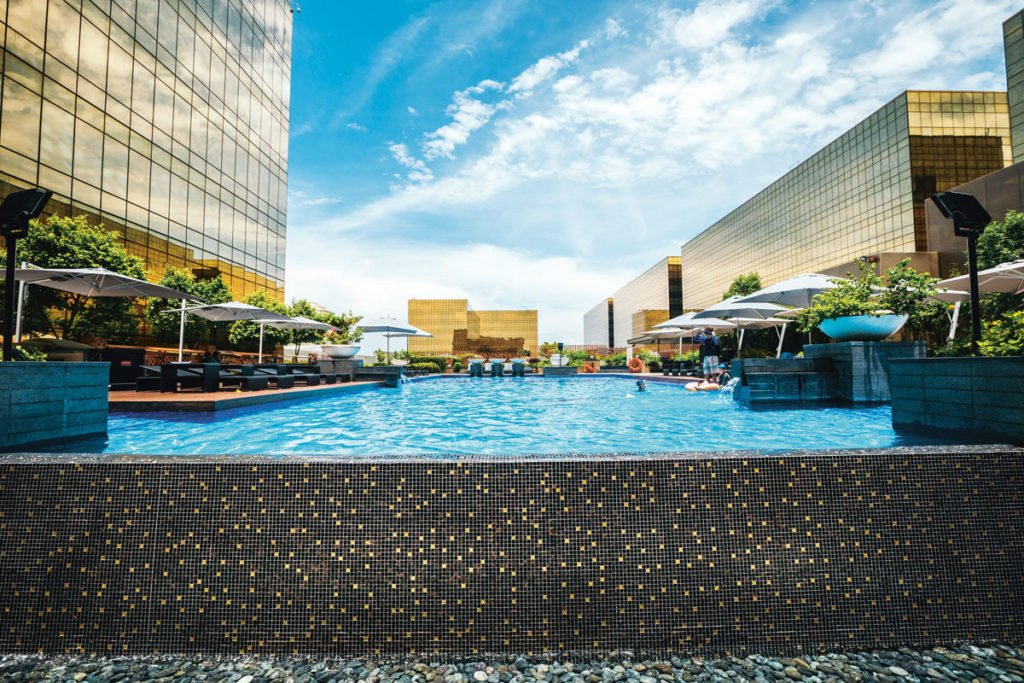
Sophisticated space
The cruise ship-like shape and style should be an indication of what guests can expect from this impressive resort by the bay. If aesthetic is high on your list, then Conrad Manila has you covered. From artist Leeroy New’s sea algae installation on the ground floor to the third-floor welcome lobby, with a floor-to-ceiling glass wall providing an unobstructed view of Manila Bay and of stunning sunsets, the hotel transports you to a place of physical and visual relaxation.
This is further reinforced by over 600 pieces of Filipino art from the likes of Olivia d’Aboville and Impy Pilapil splashed across Conrad’s minimalist design. In addition, its sprawling garden on the fourth level where trees, ornamental plants, and fresh herbs make for a welcoming city escape and scent sensation.

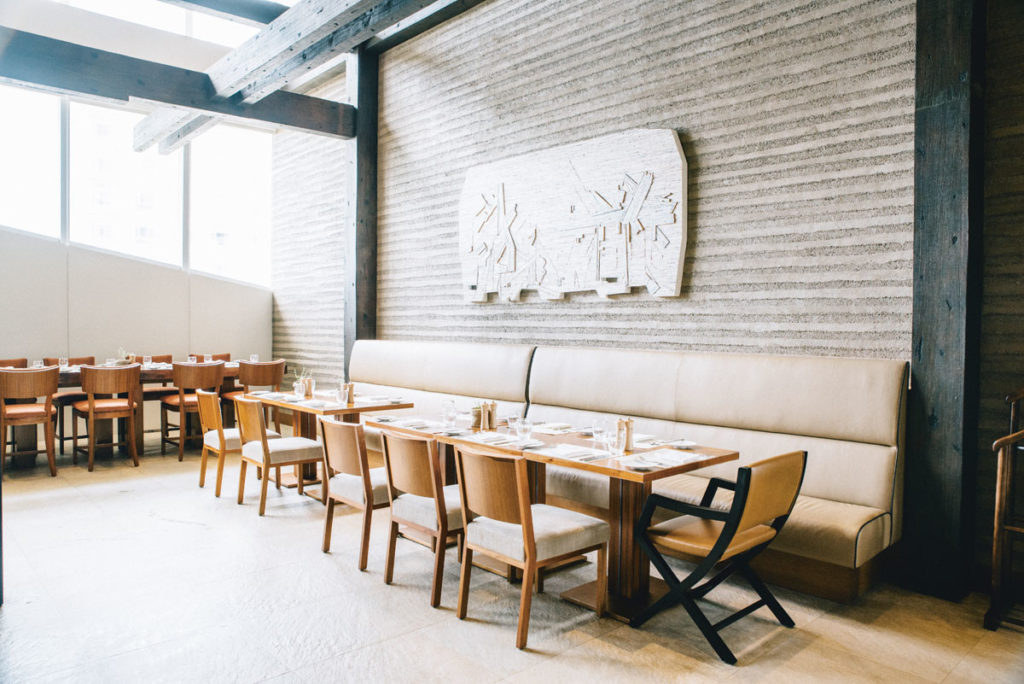
Originally published in F&B Report Vol. 13 No. 5





